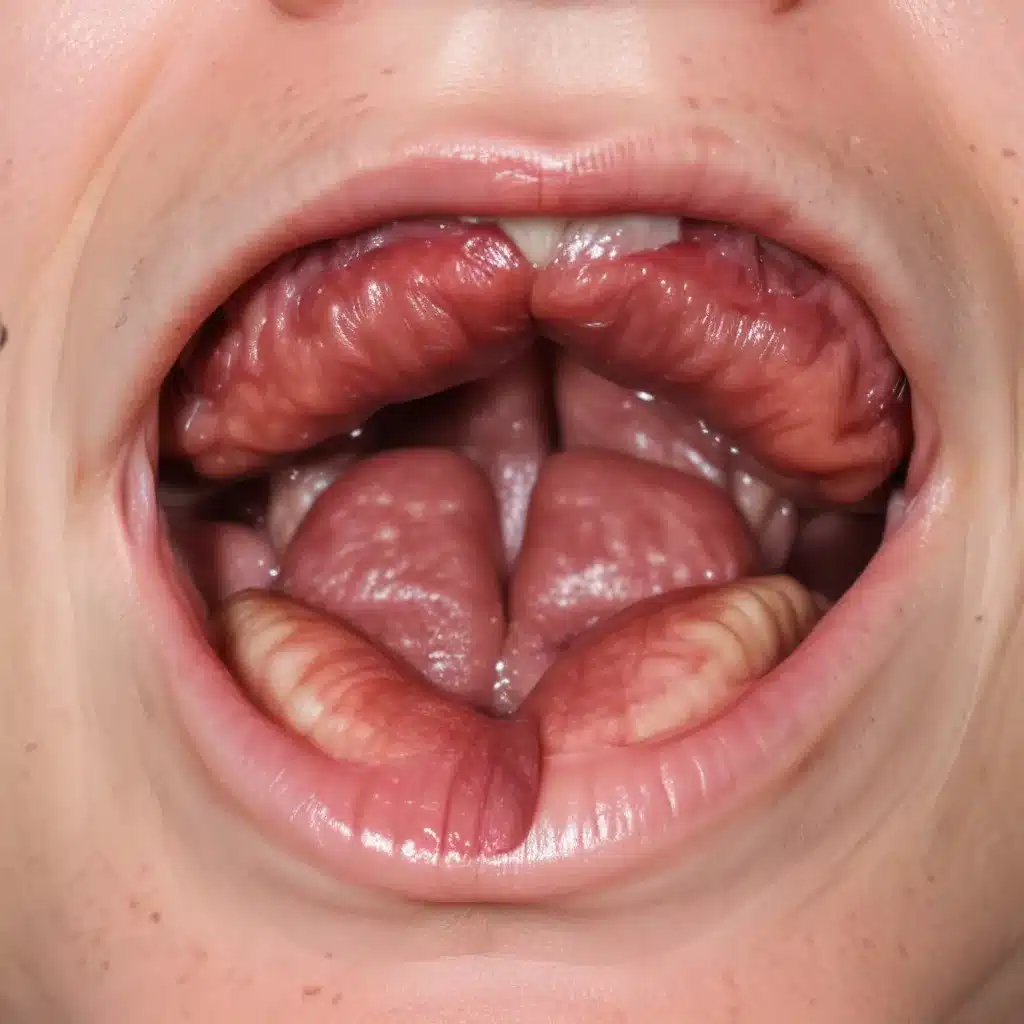
Introduction
Oral Burkitt lymphoma is a rare and aggressive form of non-Hodgkin’s lymphoma that primarily affects the jaw, oral cavity, and facial region. While it is more commonly seen in children, particularly in areas with endemic malaria, its occurrence in adults is relatively uncommon. In this case report, we present an atypical presentation of oral Burkitt lymphoma in an adult patient, highlighting the importance of prompt diagnosis and multidisciplinary management for successful treatment outcomes.
Case Presentation
A 42-year-old male presented to the Station Road Dental Aldergrove clinic with a chief complaint of a rapidly growing, painful swelling in the right side of his mouth. The patient reported that the swelling had first appeared approximately two weeks earlier and had been progressively increasing in size, causing discomfort and difficulty with eating.
Upon clinical examination, the dentist observed a large, ulcerated mass involving the right side of the patient’s hard palate, extending into the adjacent alveolar ridge and gingiva. The mass was reddish-purple in color, with a lobulated surface and was tender to palpation. The patient also reported experiencing intermittent episodes of bleeding from the affected area.
Given the unusual and concerning presentation, the dentist immediately ordered a series of diagnostic tests, including a biopsy and immunohistochemical analysis. The results confirmed the diagnosis of Burkitt lymphoma, an aggressive form of non-Hodgkin’s lymphoma.
Diagnostic Workup and Management
Following the initial diagnosis, the patient was promptly referred to an oncologist and oral and maxillofacial surgeon for further evaluation and management. A comprehensive diagnostic workup was performed, including a CT scan of the head and neck, PET-CT scan, and bone marrow aspiration and biopsy.
The CT scan revealed a large, infiltrative mass involving the right hard palate, extending into the surrounding soft tissues and alveolar bone. The PET-CT scan confirmed the single site of disease involvement, with no evidence of distant metastases. The bone marrow biopsy was negative for involvement, indicating a localized disease presentation.
Given the rapid progression of the lesion and the aggressive nature of Burkitt lymphoma, the patient was immediately started on a course of intensive chemotherapy. The treatment regimen consisted of a combination of cyclophosphamide, doxorubicin, vincristine, and prednisone, commonly referred to as the “CHOP” protocol.
During the course of chemotherapy, the patient experienced significant improvement in the size and appearance of the oral lesion. The initial ulcerated and lobulated mass gradually reduced in size, and the patient reported decreased pain and improved oral function.
Outcomes and Follow-up
After completing the initial course of chemotherapy, the patient underwent a positron emission tomography (PET) scan, which confirmed a complete metabolic response, indicating the successful eradication of the disease. The patient was then closely monitored with regular follow-up visits, including clinical examinations, imaging studies, and laboratory tests.
Over the subsequent months, the patient remained in complete remission, with no evidence of recurrent or residual disease. The patient’s oral cavity had completely healed, and he reported a return to normal oral function and quality of life.
Discussion
Oral Burkitt lymphoma is a rare and aggressive form of non-Hodgkin’s lymphoma that primarily affects the jaw, oral cavity, and facial region. While it is more commonly seen in children, particularly in areas with endemic malaria, its occurrence in adults is relatively uncommon, accounting for only a small percentage of all Burkitt lymphoma cases.
The presented case highlights the importance of prompt and accurate diagnosis, as well as the critical role of a multidisciplinary approach in the management of this rare and challenging condition. The atypical presentation, with a rapidly growing and ulcerated mass involving the hard palate, emphasizes the need for a high index of suspicion and the timely utilization of appropriate diagnostic techniques, such as biopsy and immunohistochemical analysis.
Burkitt lymphoma is characterized by its aggressive nature and high proliferation rate, which can lead to rapid progression and destruction of the affected tissues. In this case, the patient presented with a localized disease, which is relatively uncommon for adult Burkitt lymphoma, as the disease typically manifests with widespread involvement at the time of diagnosis.
The successful management of this case involved a coordinated effort between the Station Road Dental Aldergrove team, the oncologist, and the oral and maxillofacial surgeon. The prompt initiation of intensive chemotherapy, in accordance with the standard CHOP protocol, was crucial in achieving a complete response and long-term remission.
It is important to note that the treatment of Burkitt lymphoma, particularly in the setting of the oral cavity, can be challenging due to the aggressive nature of the disease and the potential for significant local tissue destruction. In addition to systemic chemotherapy, radiation therapy and surgical intervention may be necessary in some cases to control the disease and manage any associated complications, such as airway compromise or severe pain.
Conclusion
This case report highlights the atypical presentation of oral Burkitt lymphoma in an adult patient and emphasizes the importance of a multidisciplinary approach to diagnosis and management. Prompt recognition of the clinical features, timely diagnostic workup, and initiation of appropriate treatment are essential for achieving successful outcomes in these rare and challenging cases.
Station Road Dental Aldergrove is committed to providing comprehensive and specialized dental care to our patients. Our team of experienced dentists, oral and maxillofacial surgeons, and oncologists work together to ensure the best possible treatment outcomes for patients with complex oral health conditions, including rare and aggressive malignancies like Burkitt lymphoma.
If you or a loved one are experiencing any concerning oral symptoms, we encourage you to schedule an appointment with our clinic. Early detection and prompt treatment can make a significant difference in the management and prognosis of these rare and challenging conditions.

